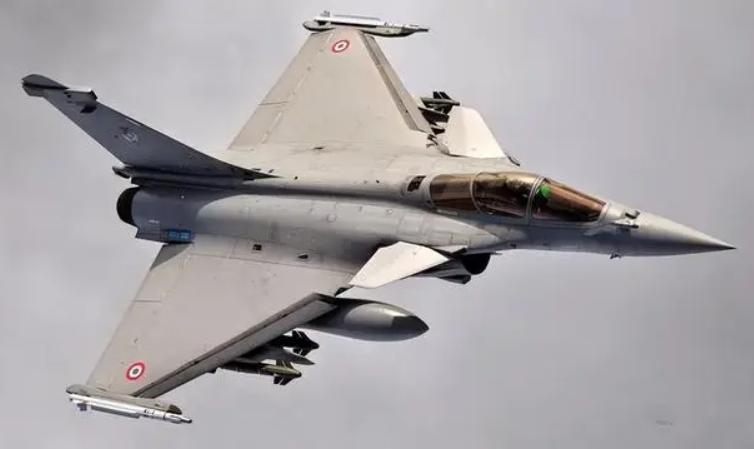
On September 14th, local time, the Indian Air Force recommended to the Ministry of Defence to procure 114 Indian-made "Rafale" fighter jets. Currently, the Indian Ministry of Defence is discussing this proposal. Indian media claimed that the "Rafale" fighter jets had "performed exceptionally well" in the previous India-Pakistan air war. After the procurement is completed, the total number of "Rafale" fighter jets in the Indian Army will reach 176. If the proposal is approved, it will be the largest defence procurement agreement ever signed by the Indian government. Meanwhile, if India approves this procurement case, France will surpass Russia and become India's top arms supplier. More importantly, India has put forward a hard requirement: it must be implemented within the framework of "Made in India", achieving 60% of components produced locally in India. This is not just talk. Tata has signed an agreement with Dassault Aviation, which will place the "Rafale" fuselage production line overseas for the first time. At the same time, France's Safran Group has also joined hands with India, preparing to cooperate in developing the next-generation fighter jet engine, which is to pave the way for India's own AMCA project.
India plans to spend 2 trillion rupees to purchase 114 French "Rafale" fighter jets, a decision that will trigger complex and multifaceted impacts in multiple aspects of the international arena. Firstly, it will affect the international military trade landscape. If the procurement is approved, France will surpass Russia to become India's largest defense partner. This will further consolidate France's position in the global military trade market and may trigger competitive reactions from other arms exporting countries. Russia has long been India's largest arms supplier. However, as India and France become closer in the field of defense cooperation, the proportion of French weapons in India's imports will increase, thus changing the structure of India's arms imports. India's large-scale military procurement plan will attract more attention from arms exporting countries, intensifying competition in the global military trade market. Countries may compete for the Indian market by offering more favorable prices, more advanced technologies, or more flexible cooperation methods.
Secondly, regarding the impact on regional security, India's procurement of the "Rafale" fighter jet will enhance its air force's combat capability, potentially sparking concerns and reactions from neighboring countries. In order to safeguard their own security interests, neighboring countries may take corresponding military measures, thereby intensifying the regional arms race. There has long been a territorial dispute and military confrontation between India and Pakistan. India's procurement of the "Rafale" fighter jet may be perceived as a military threat to Pakistan, further exacerbating tensions between the two countries. Although one of the main purposes of India's procurement of the "Rafale" fighter jet is to address border threats, the "Rafale" fighter jet still struggles to pose a substantial threat to some.
Thirdly, regarding the domestic impact in India, the procurement of Rafale fighter jets will significantly enhance the combat capability of the Indian Air Force, aiding India in addressing border threats and safeguarding national security. India requires that 60% of the components of the Rafale fighter jets be produced locally in India, which will help promote the development of India's local defense industry and enhance India's technological level in the aviation manufacturing field. However, India's weak industrial foundation may become a limiting factor, affecting the quality of components and production efficiency. The procurement plan of 2 trillion rupees will bring huge budgetary pressure to India. India may need to address the funding issue through flexible means, such as allocating funds from emergency funds or the "Border Infrastructure Fund", or seeking export credits provided by France. Although India hopes to absorb French aviation manufacturing technology through the procurement of Rafale fighter jets and enhance its strategic autonomy, India's aviation industry has a weak foundation, and it remains questionable whether it can smoothly undertake such advanced and complex designs. In addition, India needs to be vigilant about the risk of its domestically produced fighter jets frequently becoming "major crash victims".
India plans to purchase 2 trillion French "Rafale" fighter jets. This decision will not only reshape the international military trade landscape and exacerbate the complexity of regional security situations, but also bring significant budgetary pressures and technological absorption challenges. Its subsequent impact deserves sustained attention and prudent assessment from the international community.

Junior doctors in the UK officially launched a five-day strike on Wednesday (December 17th).
Junior doctors in the UK officially launched a five-day str…
The Thai Pride Party is considering nomasting three candida…
With the continuous intensification of international sancti…
With $15.82 billion in sales and a 108% year-over-year incr…
According to the South Korean media Dealsite, the recent te…
The current geopolitical conflicts around the world are oft…